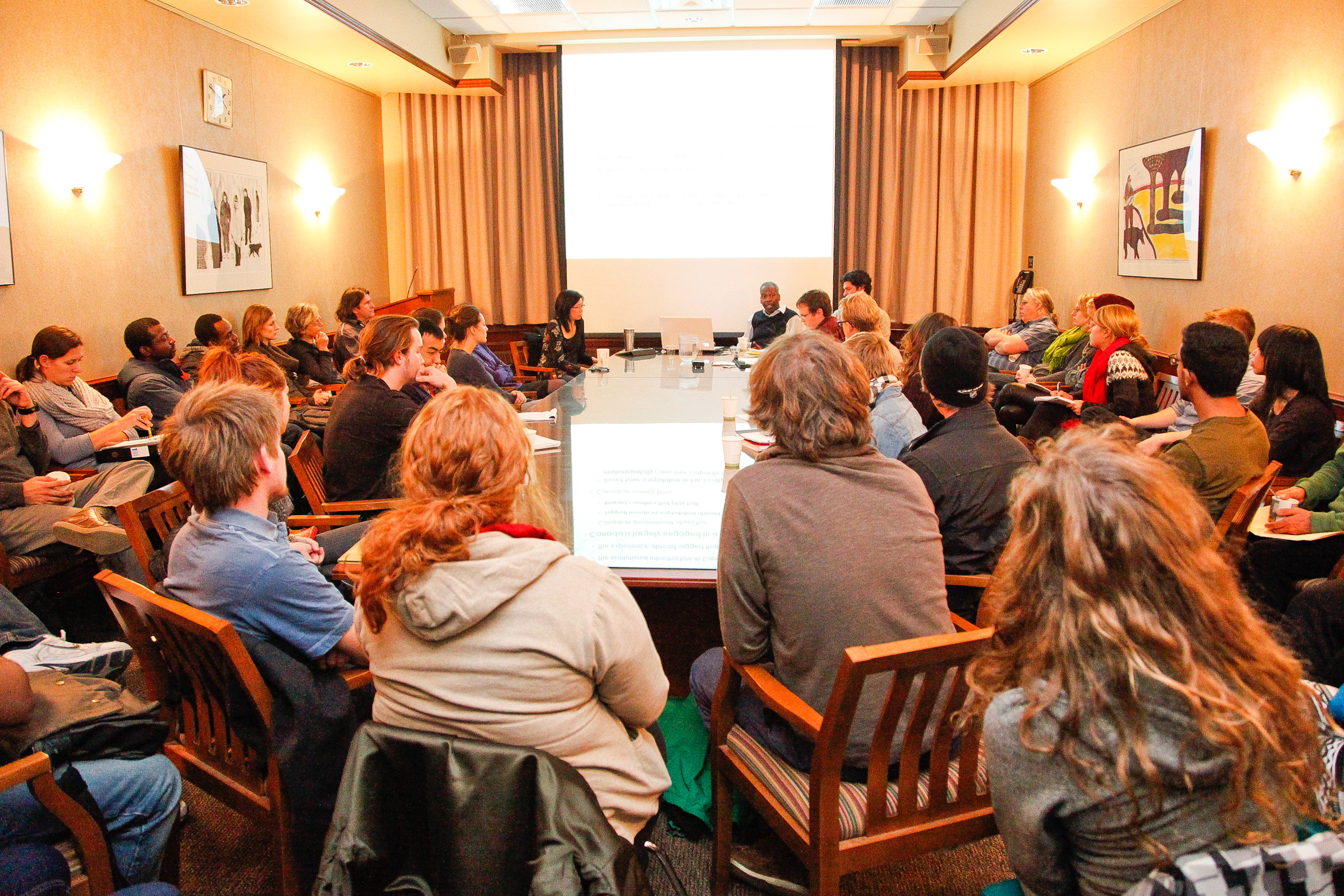Canada’s waning international reputation was the subject of a panel discussion hosted last Tuesday by the global political economy program at the University of Manitoba, as a part of World Opportunities Week. The panellists were John Serieux, Fabiana Li, and Jonathan Peyton from the departments of economics, anthropology, and environment and geography, respectively.
The panel focused on the poor reputation that Canada’s mining and extractive firms have in the developing world and the increasingly negative reputation that the country as a whole is developing as a result.
Canada has become a major player in global mining and energy sectors in terms of mineral exploration, production, and exports. According to a report released by the Mining Association of Canada, the Toronto Stock Exchange (TSX) and the TSX Venture Exchange now account for “40 per cent of global mining equity capital.”
Natural Resources Canada stipulates that Canadian firms are increasingly involved in resource extraction globally, with “assets abroad valued at over $129 billion in 100 countries.”
“There has been a lot of recent investment in large-scale mining projects by Canadian companies, for example, in Latin America. We’re seeing an expansion of resource extraction into areas that were used for other economic purposes, so agriculture and farming are competing with extractive industries, which use a lot of water and land,” Li explained at the discussion. “The people living in the vicinity of these projects are not seeing much benefit from these mining projects, and are suffering from considerable environmental and social costs that result from these activities.”
Canadian mining firms have earned a particularly bad reputation in the countries in which they operate, and the panellists argued that this is progressively affecting Canada’s international reputation as a whole.
Serieux pointed to the role of the federal government in exacerbating this growing negative perception of the country abroad.
“Under the Harper regime there has been a much more conscious effort to attach Canada’s reputation, and the considerable influence that the Canadian government has, to the fortunes of Canadian extractive firms. Things like putting CIDA [the Canadian International Development Agency] within DFAIT [the Department of Foreign Affairs and International Trade] are very much a conscious effort to bring the two agendas together – the aid agenda, and the trade and foreign relations agenda.”
Li added, “NGOs and grassroots organizations that oppose mining projects sometimes see their funding cut off because their activities are not consistent with the interests of the Canadian government.”
Serieux elaborated on why creating growth and development is very difficult in an underdeveloped economy that is heavily dependent on resource extraction.
“Resource extraction typically does not produce high levels of employment, it is very capital intensive, these activities do not have a lot of linkages to the rest of the economy, and the output is exported. So the direct dynamic impact on the economy is limited. On top of that, most of the wealth that accrues through resource extraction is through the tax system—royalties—which goes directly into government coffers, which often times is not equitably distributed.”
Li said, “With any resource-based economy, you are vulnerable to changes in prices on international markets. I think it’s dangerous to build an economy based on industries that are not stable in the long run and that are so heavily contingent upon something that is outside of the country’s control.”
Serieux commented on the lack of regulatory oversight that Canadian firms operate under when outside of the country. “[Canada] has refused to develop laws for regulating the behaviour of these firms abroad, essentially allowing these companies to do whatever they want and get away with it.”
Li also pointed out that, “There is no way for Canadian companies operating internationally to be made legally accountable here in Canada for their actions abroad.”
As an indication of Canada’s worsening international image, the panel said that the practice of travellers affixing Canadian flags to their backpacks is less common nowadays than it once was.
“In certain parts of the world, being an American is easier than being a Canadian; it’s true and it’s not a joke. [It’s] something that, two decades ago, was definitely not the case,” said Serieux.






Kudos to the Canadian companies who took some business risks. They even risked their lives (the mining business is full of hazards). So instead of congratulating them, this article tells us that Canadians are not being perceived as wimps, and I say, it’s about time!
Guys like Harper understand that.
Li said, “With any resource-based economy, you are vulnerable to changes in prices on international markets….” So, what is the point here? Agricultural prices are also determined in international markets, and some manufacturing good prices are determined internationally. Then, are manufacturing and agriculture bad for Canada??????? Should not we rely on them????
“As an indication of Canada’s worsening international image, the panel said that the practice of travellers affixing Canadian flags to their backpacks is less common nowadays than it once was.”
Where is the proof of this? Some other people may just say the opposite. If this is a scientific discussion, you talk with evidence. Which scientific study shows this result,and even if we accept that this is less common, what is the proof that this is caused by the mining industry? It seems like some people have no evidence of the declining reputation of Canada due to mining so they rely on general statements that are not proven.
My point is that the mining industry (some of them) create environmental problems but it also creates income/wealth for Canadians. We should focus on these environmental problems and find solutions without forgetting the benefits brought by the industry. If the costs of this industry were higher than the benefit to the society, the soceity would not allow the industry to exist!